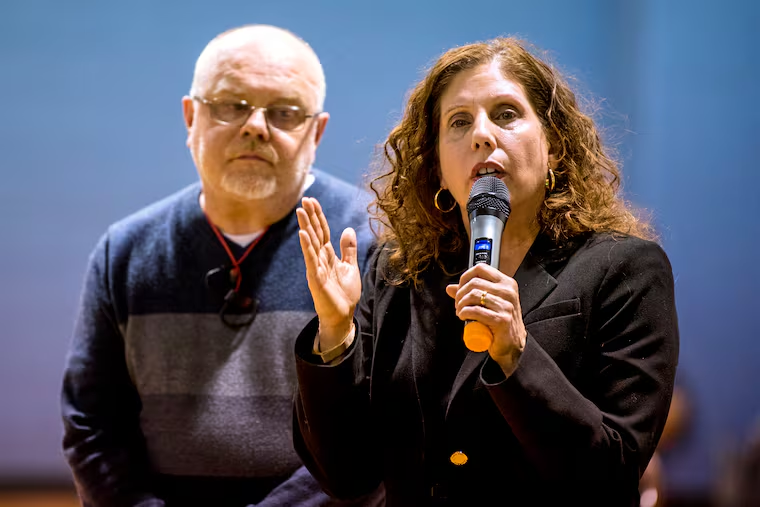Philly’s supervised injection site backers say they won’t delay opening while Justice Dept. appeals
The Justice Department has vowed to “use all enforcement tools” at its disposal to shut down any site that opens before the appellate process plays out. Drug seizures, arrests or criminal forfeiture proceedings could all be on the table.

The Philadelphia nonprofit hoping to operate the nation’s first supervised injection site said Tuesday it would not let an expected appeal by the Justice Department — or threats from the U.S. attorney in the city — stop it from opening soon.
In a court filing late Monday, attorneys for Safehouse asked U.S. District Judge Gerald A. McHugh to enter a final order cementing his October decision that an overdose prevention facility like the one organizers have proposed would not inherently violate federal law. Once the order is signed, the filing said, Safehouse intends to launch as “soon as possible.”
Asked Tuesday whether that meant Safehouse intends to defy Justice Department requests to hold off until McHugh’s decision could be appealed, the nonprofit’s vice president, Ronda Goldfein, said, “We hope that we can open and remain open while the [U.S. attorney] pursues his appeal.”
Her remarks offered the first firm indication of the nonprofit’s plans in the months after McHugh’s ruling. They also moved the nonprofit closer to a standoff with U.S. Attorney William M. McSwain, who has vowed to “use all enforcement tools” at his disposal to shut down any site that opens before the appellate process plays out.
Drug seizures, arrests, or criminal forfeiture proceedings could be on the table, he has said, if the nonprofit’s backers move forward.
But it remains unclear how close Safehouse is to opening the facility, where people in addiction could use drugs under medical supervision, access treatment, and be revived if they overdosed.
A site has not been selected and fund-raising continues. Goldfein said Tuesday that the nonprofit does not have enough money to keep a site open in the long term.
“Donations have been good, people continue to write us notes and to send us checks,” she said. “We understand why it’s complicated, on so many levels, in terms of how people are feeling about [the site]. But we believe this is an evidence-driven initiative that can save lives.”
In his decision last year — the first of its kind for a U.S. court — McHugh ruled that a 33-year-old federal statute designed to target “crack houses” would not apply to the facility Safehouse has proposed.
“The ultimate goal of Safehouse’s proposed operation is to reduce drug use, not facilitate it,” the judge wrote.
Supporters of supervised injection sites have hailed the judge’s decision and hope it could influence judges in the handful of other U.S. cities that are mulling sites. Critics — including Philadelphia’s police union and some Kensington residents — fear that a site would lead to increased drug use and would concentrate dealing around it.
The Justice Department maintains that a supervised injection site would be unlawful regardless of the intentions of its backers. It has vowed an immediate appeal once McHugh enters a final order.
While that battle plays out in court, McSwain has noted, there are other federal statutes he could enforce that would “as a practical matter shut the site down.”
“The possession and use of heroin are illegal — and [McHugh’s] decision did nothing to change that,” he wrote in an October letter to Safehouse’s attorneys. The ruling “addressed only Safehouse itself and not the issue of the visitors’ possession and use of illegal drugs at the site, nor the issue of illegal drug distribution that will inevitably occur nearby.”
McSwain’s office did not indicate Tuesday whether it would oppose Safehouse’s request for a final order from the judge, saying only that it intends to file a response in court next week.
“This is a necessary first step to getting the case elevated to the U.S. Court of Appeals for the Third Circuit,” the office said in a statement. “We are looking forward to that opportunity.”
Ronda Goldfein, who is quoted in this story, is the wife of David Lee Preston, an editor at The Inquirer.